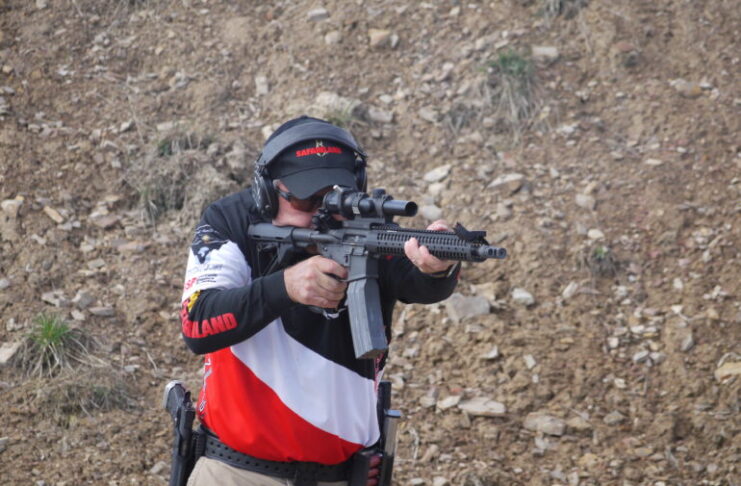By Doug Howlett The Truth About Guns
Five years after the country's legislation banning the ownership of semi-auto rifles and spending more than a $100 million of tax-funded dollars to compensate existing owners of the rifle in what amounted to gun confiscation, New Zealand officials are looking to revisit the ban and potentially allow at least some residents to own modern sporting rifles once again for competition, hunting, etc.
Unlike the United States, gun ownership is not an enumerated right in New Zealand, rather it has always been a privilege—a privilege that was largely snatched away in 2019 after a Christchurch mass shooting at two mosques by a gunman who espoused white supremacist views left 51 people dead and injured at least 40.
However, since the suspension of semi-auto gun ownership in that country as a response to those killings, the country has actually witnessed more violent crime taking place, much of it blamed on a rise in gang violence.
“Over the last five years gangs have recruited more than 3,000 members, a 51-percent increase. At the same time, we've seen a significant escalation in gang-related violence, public intimidation and shootings, with violent crime up 33 percent,” Justice Minister Paul Goldsmith said in a press release last week.
Goldsmith is part of a coalition government that formed to oust the ruling Labour Party, under which the gun ban and coinciding rising crime occurred. Bearing Arms reports the Labour Party “suffered huge defeats” in October 2023 elections that saw the party go from a majority 65 seats in the 122-member Parliament to just 31.
With an apparent mandate to turn things around given the scathing loss by the Labour Party, the coalition government is refocusing their efforts on going after criminals rather than taking privileges away from and punishing upstanding citizens.
All Gun Laws Are on the Table
A big part of that will be revisiting the country's Arms Act of 1983, which has shaped New Zealand's gun laws for more than 40 years now.
“It means starting from scratch,” Associate Justice Minister Nicole McKee told Radio New Zealand (RNZ). “There's nothing set in stone as we advance this process. The reason why the 1983 Act lasted so long is because there was genuine and good consultation.
She noted that everything is open to discussion, from the country's current licensing system to a potential re-introduction of the modern sporting rifles that were banned following the 2019 mosque attacks.
McKee told RNZ she wanted to change the current licensing system to a graduated process to “enhance public safety.”
“Ensuring licensed firearms owners are fit and proper through a graduated system of licensing where people earn trust over time, and a licensing agency carrying out a range of checks, is the sensible way of ensuring public safety,” McKee told RNZ.
While such a move would fall woefully short of U.S. gun owners' expectations and acceptance in light of our country's Second Amendment, it's a bold move forward in a nation where gun ownership is not protected.
The move could restore the right to use modern sporting arms for competition, a use that is currently banned under national law. Currently, the only permitted uses for semi-autos is for pest control and if the gun is rendered permanently unusable, for collector's items.
Renewed Focus on Criminals
While the gun moves are positive but not up to American muster, the current coalition government's stance on going after criminals rather than law-abiding citizens is something U.S. leaders could possibly take a lesson from.
Said Justice Minister Goldsmith:
“We need to take action and reduce gangs' ability to engage in criminal behavior and prevent them from further endangering and intimidating Kiwis.
“That is why, as part of National and ACT's coalition agreement, the Government will introduce legislation to ban all gang insignia in public places and create greater powers to stop criminal gangs from gathering in groups and communicating.
“Police will be able to issue dispersal notices, which will require gang members to immediately leave the area and not associate with one another for seven days.
“Courts will be able to issue non-consorting orders, which will stop specified gang offenders from associating or communicating with one another for up to three years.
“The law will also be changed to give greater weight to gang membership as an aggravating factor at sentencing, enabling courts to impose more severe punishments.”
Minister of Police Mark Mitchell add that his countrymen and women deserve to feel safe.
“For too long gangs have been allowed to behave as if they are above the law. There is no tolerance for this behavior and these new laws will support police to take action against it,” he said.
Find the original article in its entirety on The Truth About Guns.


